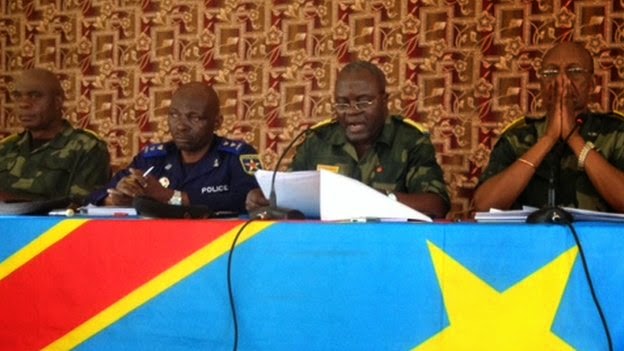Milli Lake, a doctoral candidate at the University of Washington has written a thought-provoking commentary on the recent military-court rape trial in the Democratic Republic of Congo. Among her observations:
Why the Minova trial fell short of providing justice for the Minova rapes highlights a set of broader challenges facing the Congolese justice system.
The trial demonstrates that rather than providing an impartial venue for pursuing legal accountability, human rights trials in eastern DR Congo are inherently political processes.
Although the legal system has a strong track record of securing rape convictions, this track record was immediately overturned when higher-ranking officers were among the accused.
Too often, criminal trials offer spaces where deals and negotiations between local elites may be struck, and junior officers can be targeted while their superiors evade responsibility.
The failure to hold high-ranking officials responsible for the actions of their troops in conflict can, in part, be attributed to an unfortunate feature of Congolese law that forbids military officers from being judged by officers of inferior rank.
This provision makes it notoriously difficult to hold any colonels or generals legally accountable for their criminal actions through the domestic justice system. Yet in practice other factors persist.
In the ground-breaking case against Lieutenant Colonel Kibibi and ten of his troops for mass rape in Fizi, South Kivu, in 2011, a criminal prosecution was permitted to proceed through the courts.
The trial was hailed as a major human rights victory. In just six weeks, a full investigation and trial had been carried out, resulting in a twenty-year sentence currently being served out by Lt. Kibibi in Kinshasa.
In contrast, a similarly grave mass rape that took place in South Kivu just five months later, involving Colonel Alexis Kifaru, was never permitted to move through the justice system.
The case was obstructed in spite of the fact that military prosecutors had procured a great deal of evidence for the case and Kifaru was briefly detained in UN custody.
Close ties between Col. Kifaru and elites in the Congolese military command structure protected the colonel from prosecution, whereas Kibibi, who had reportedly fallen out of favour with his superiors, was perceived to have been handed over to military prosecutors by the Congolese army as a "sacrificial lamb" intended to evidence the commitment of the armed forces to promoting human rights and gender justice.
Similar dynamics can be observed in this week's Minova verdict. Stories like those involving Kibibi and Kifaru make it clear that, even if legal and logistical challenges could be overcome, criminal prosecutions in environments of ongoing violence are necessarily shaped by conflicts between different factions and elites.
When behind the scenes negotiations determine which cases get to trial, which mysteriously disappear from the system, and who can bear legal responsibility for acts of violence, criminal trials like those in Minova will only be able to go so far towards building a culture of legal accountability and the rule of law.

This sounds familiar.
ReplyDelete